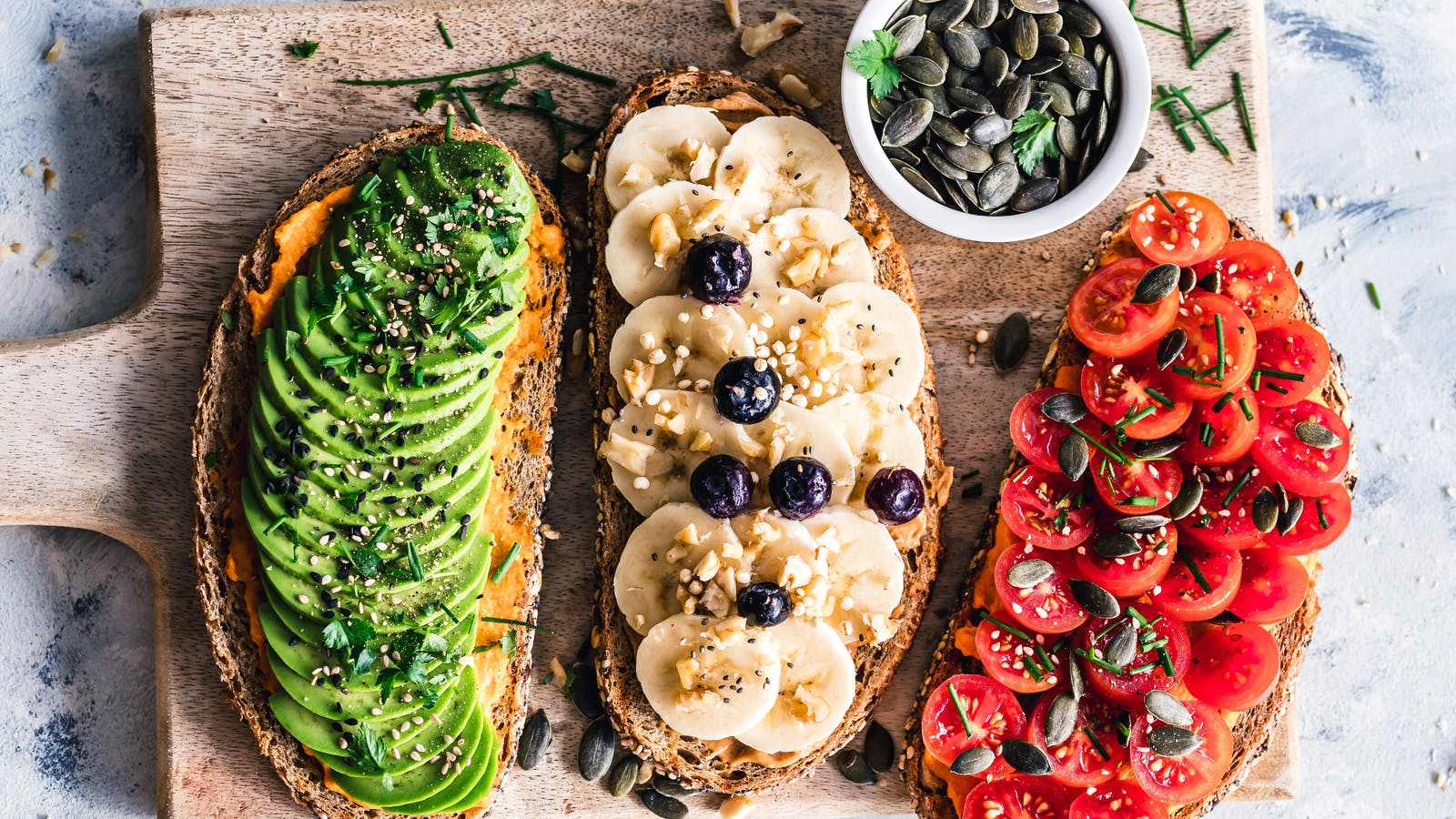More and more of us are wondering about the consequences of our food choices . Thus, vegan, vegetarian and flexitarian diets have gained visibility in recent years and are part of a global evolution in the relationship with food . In this context, more than 60% of French people feel ready to reduce their consumption of meat products in favor of plant-based products. Different reasons pushed these French people to change their way of life, including a strong interest in animal welfare , environmental protection and the prevention of certain diseases triggered by excessive consumption of products of animal origin. While these diets are obviously beneficial for the body and the planet, their implementation takes time, a lot of effort and may even require supplementation .
A quick update on vegan, vegetarian and flexitarian diets
The vegetarian diet
The vegetarian diet consists of excluding proteins of animal origin (meat, fish, seafood) from the diet with the exception of eggs and dairy products (cheese, butter, dairy products), for ethical reasons, environmental or even health. These animal flesh are banned from everyday life and replaced by proteins of plant origin such as soy, cereals or legumes. Among the vegetarian diets, we find the vegan, lacto-vegetarian, ovo-vegetarian, pesco-vegetarian and ovo-lacto-vegetarian diets.
The vegan or vegan diet
The vegan diet goes further than the vegetarian diet and is based on a purely plant-based diet since it consists of excluding from the diet all products resulting from animal exploitation. So beyond meat, fish and shellfish, this diet also eliminates the consumption of eggs, dairy products and beehive products. Vegans are vegans and apply this practice to many areas beyond vegan food (ready-to-wear, cosmetics, nutraceuticals, etc.), the principle being not to contribute to animal exploitation and suffering. Veganism therefore goes beyond a simple diet and is rather considered a way of life.
The flexitarian diet
Nearly 40% of French people have adopted the flexitarian diet, which consists of favoring foods of plant origin and limiting meat consumption. All food groups are indeed authorized but their frequency of consumption varies: cereals, legumes, fruits and vegetables and fats are consumed daily while the consumption of meat and fish is occasional. This diet does not exclude any product and is therefore much less restrictive than veganism or vegetarianism. The principle is simply to vary your diet by focusing more on quality than quantity.
What are the benefits of these specific diets?
Vegans, vegetarians and flexitarians have often opted for this type of diet in an ecological approach and respect for animal welfare . Indeed, animal abuse is no longer a secret to anyone. And despite the fact that the European Union recognizes farm animals as sentient beings capable of feeling pain, billions of animals are raised in intensive systems. In addition, these diets help take care of the environment by reducing greenhouse gas emissions and deforestation linked to livestock farming.
Finally, they would also have a beneficial impact on health . They would make it possible in particular to prevent cardiovascular diseases and certain cancers of the digestive sphere. Indeed, when they are carried out well, they respect nutritional recommendations better than the usual diets of industrialized countries which are too rich in cholesterol, saturated fats, salt and proteins. They can therefore be adapted to everyone (unless there are particular contraindications) provided that you compose balanced plates, rich in nutrients. In particular, it is necessary to provide quality proteins and fats rich in omega-3 at each meal. You will find plant proteins in legumes, oilseeds and whole grains and omega-3 in rapeseed, flax or even hemp vegetable oils.
What should you pay attention to when choosing such a diet?
While veganism, vegetarianism and flexitarianism are healthy diets, you still need to take certain precautions and watch out for deficiencies . Indeed, the most difficult thing is to cover all nutritional needs thanks to plant-based products. Sometimes of poor quality , they can also be composed of micronutrients with reduced bioavailability or simply be poorer in essential nutrients than products of animal origin. If meals are not diversified and balanced, it is possible to see deficits appear which themselves lead to deficiencies if they are not filled.
While it is possible to have a healthy and balanced diet when following a vegan or vegetarian diet, this balanced diet requires real nutritional knowledge. This is why vegetarians and flexitarians are often advised to supplement to avoid deficiencies . Taking food supplements is mandatory for vegans, who are exposed to a high risk of iron, calcium, zinc and vitamin deficiencies, micronutrients with an important role in human health.
Indeed, vitamins B12, B2 and D are mainly present in foods of animal origin and a deficiency in these vitamins can produce irreversible neurological damage, anemia or unusual fatigue. In addition, vegan women who consume few legumes and green vegetables are at risk of iron deficiency, and therefore anemia, because iron from plant foods is generally less well absorbed than that from foods of animal origin. Finally, in vegan and vegetarian diets, there is a significant consumption of phytates, substances present in whole grains, which can reduce the absorption of zinc and calcium by the intestine and lead to a drop in immune function, a delay growth or even osteoporosis. To be sure to consume enough of these micronutrients, they can be provided in the form of a food supplement. Around 60% of vegans and vegetarians take supplements every day.
Please note that the unaccompanied vegan diet is strongly not recommended for certain groups of people , in particular children, pregnant or breastfeeding women as well as sick people or people over 65 years old because the nutritional needs are particularly high. The support of a professional is therefore essential.
How to optimize your nutritional intake within the framework of these diets?
Opt for a specific diet
To limit nutrient deficiencies, it is necessary to understand the ingredients that are preferred in these specific diets.
- Plant proteins : legumes (lentils, beans, peas, broad beans, tofu, tempeh, etc.), oilseeds (walnuts, hazelnuts, almonds, etc.), cereals and quinoa.
- Iron : lentils, dried beans, oatmeal, tofu, green leafy vegetables (leeks, cabbage, spinach, etc.) and dark chocolate.
- Zinc : Wheat germ, sesame seeds, shiitake mushrooms and legumes.
- Calcium : mineral water, turnip or cabbage greens, white beans, rutabaga, broccoli and almonds.
- Vitamin B12 : Only dairy products and eggs contain B12. Its supplementation is therefore essential for vegans. Be careful with spirulina, chlorella and algae: often presented as sources of vitamin B12, they in fact have no vitamin activity in humans.
- Vitamin B2 : very present in products of animal origin (offal, cheese, eggs, fish), it is found in smaller quantities in almonds, sesame seeds, mushrooms, wheat and algae.
- Vitamin D : mainly present in fatty fish, it is found, to a lesser extent, in mushrooms. It can also be synthesized using the sun's rays.
Choosing THE right food supplement
The Essential vegan, vegetarian & flexitarian vegan food supplement has been specially developed to adapt to specific vegan, vegetarian and flexitarian diets. This superb product comes in the form of Duocaps capsules , an ultra innovative and very complete form which makes it the best vegan food supplement. Indeed, thanks to this unique galenic, the capsules can combine both an oil from the Schizochytrium algae , rich in DHA and EPA, two essential fatty acids (omega 3) AND all the vitamins and minerals necessary to fill the deficits or deficiencies of vegans, vegetarians and flexitarians, never seen before in France! We indeed find vegan vitamin B12 , vegetable vitamin D3 , vitamin B2 , vitamin C , iron , zinc , iodine and selenium associated with omega-3 .
These pretty capsules optimally complement a vegan diet (100% to 150% of the Recommended Daily Allowance) and adapt to everyone's nutritional needs : 3 capsules for vegans, 2 capsules for vegetarians or flexitarians, 1 capsule for adolescents . Everyone can find their way there! In addition to being super effective and very pretty, this beautiful innovation is obviously vegan, gluten-free, lactose-free, and made in France.

